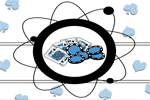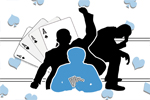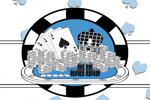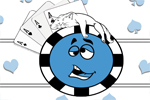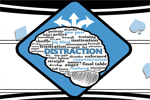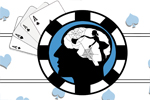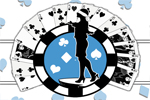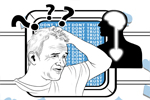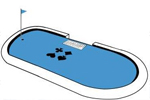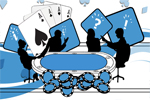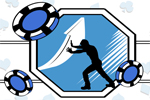Increasing Mental Endurance
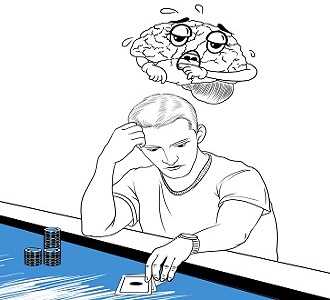
One of the great things about online poker is that it’s always open for business. But that doesn’t mean you have a limitless amount of mental endurance and energy to always play. In the second chapter, I talked about how to find that ideal level of energy. This chapter will help you sustain it longer.
Having greater mental endurance or stamina comes in handy when you’re trying to make more money without moving up in stakes or need to handle the late stages of a big multi-table tournament like the Multi Table Tournament that attracts thousands of players.
Plus, that extra endurance will improve your poker mindset and help you perform well in high pressure situations, like a big final table, because they are incredibly draining.
Throughout my career, I’ve helped players increase their mental endurance so they could play longer and more tables at once, all while still playing at a high level. The last part being key, since there isn’t any skill to playing more poker badly. Here are the steps that have proven to help build greater mental endurance:
- Take small steps
- Rest
- Improve your C-game
Take Small Steps
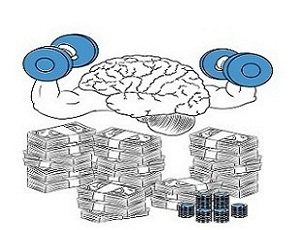
But, after watching my poker video above – you do the math; it’s a 100% increase! Imagine going into the gym and trying to lift 100 kilos when you can currently lift 50. Or deciding to go run a 10k when you’ve previously only completed a 5k. I’m not saying you can’t do it, but I am saying that you won’t be able to sustain it. If you continue to lift, run, or play that much more poker, eventually, you’re going to get hurt. Mentally speaking, that means you’ll burn yourself out and won’t have access to the energy you’re used to having. You will have trouble focusing, feel slower and lack motivation. You may even think you’ve gotten lazy, but really you burned too much energy and need a lot of rest to fully recover.
Start with the 50-Hour Poker Package
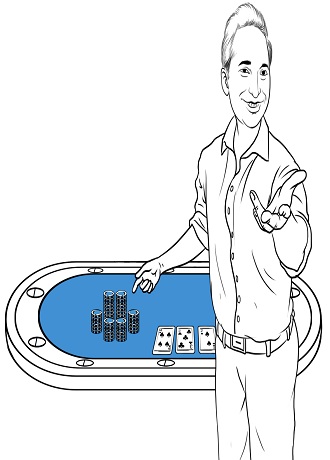
Players who want to make these massive leaps in their poker mental game ften have big swings in terms of the amount that they play. For example, one month they’ll play 80 hours, and the next month they can only play 25. Then they swing back up and get in 75 and then only 20 the month after. There’s nothing inherently wrong with this cycle. If that’s how you want to play, go for it. But there is another way.
If we look realistically at this example, the average over the four months is 50 hours. That’s the number of hours you can comfortably play in a month. Starting with 50 hours, gradually increase that amount each month. An increase of around 10 – 20% month over month is around what I’ve found can comfortably be sustained. That means in the first month you’ll aim to play between 55 and 60 hours. Then, 60 to 72 hours the month after, and so on. It doesn’t take long to build up your endurance with a balanced poker mentality, but I would say that if you are continually pushing an increase of 20%, after 3 or 4 months, you’ll need a month where you maintain the last month’s target. This will help to solidify the gains you’ve already made and make it more likely that you can continue to add more time. By the way, the same general strategy applies when adding more tables – a great poker tip especially for those playing Texas Hold’em.
To give you some clarity on how this would look on a daily basis, here are some sample poker tips for mental workouts. In the increasing time workout, let’s say that you play an average of 20 days in a month, 2.5 hours per playing day and your goal is an increase of 10 hours for the month. The increasing time and tables example assumes you want an increase of 5 hours, while also adding an additional table to the four you already play.
| Increasing Time | Increasing Time & Tables |
| Day 1: Increase by 15 minutes | Day 1: Increase by 30 minutes |
| Day 2: Increase by 15 minutes | Day 2: Increase by one table |
| Day 3: Off day | Day 3: Off day |
| Day 4: Increase by 30 minutes | Day 4: Increase by 30 minutes |
| Day 5: Off day | Day 5: Off day |
| Day 6: Increase by 30 minutes | Day 6: Increase by one table |
| Day 7: Off day | Day 7: Off day |
| Day 8: Increase by 30 minutes | Day 8: Increase by one table |
| Day 9: Increase by 30 minutes | Day 9: Increase by 30 minutes |
| Day 10: Off day | Day 10: Increase by 15 minutes and one table |
| Day 11: Increase by 30 minutes | Day 11: Off day |
| Day 12: Increase by 45 minutes | Day 12: Increase by 30 minutes |
| Day 13: Increase by 30 minutes | Day 13: Increase by 15 minutes and one table |
| Day 14: Off day | Day 14: Off day |
| And so on… | And so on… |
Keeping a Detailed Poker Log
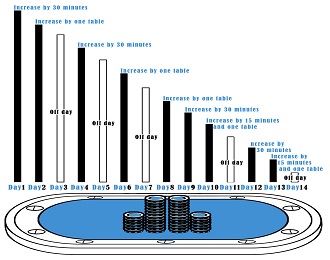
If you decide to take this seriously, keep track of your progress in an excel file – a very useful poker tip whether you’re a beginner or advanced player. Track your target volume or tables each day, your actual volume, and notes about the mental intensity of the session. The last part is important because it adds an important qualification to the numbers. Let’s say on Day 4 of the increasing time workout, you run terribly and are faced with a ton of difficult decisions. Your poker strategy goal was to play 30 more minutes than normal, but you’re slightly tilted, a bit tired and down a bunch of money, so you decide to quit after 2.5 hours. Keep track of the reasons you didn’t reach your goal in your notes. Over time you’ll see trends and will see what is preventing you from increasing your volume.
Sometimes it’s not your desire to increase your endurance that stands in your way, it’s mental game issues, life, or other factors related to the psychology of poker that disrupt you. If you have significant issues with poker tilt control, fear, or confidence problems, they will happen more often when you add more time or tables. If you keep pushing your endurance goals without correcting them, they’ll get worse and require more time off to recover. Solving these mental game issues is key to reaching your endurance goals, and may have been a big reason why you couldn’t reach them before.
Rest
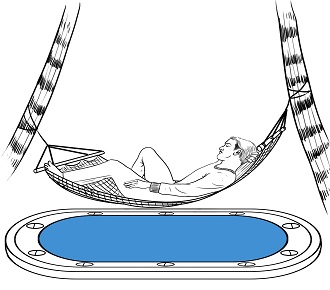
When working out in the gym, you’re tearing muscle fibers and indicating to your body the amount of weight you want to lift. When you rest, your body heals those small tears and that is what makes you stronger. If you don’t rest your body and continue with strenuous exercise day after day, you’ll eventually become weaker. The same principal holds true mentally when trying to increase your mental capacity.
Whether you’re trying to add more time or tables to your game, be sure to follow these poker psychology tips that will help you balance intense work with rest. I’ve already mentioned several ideas how you can do this in the chapter Decluttering Your Mind and in other poker strategy articles in this guide. Be sure to review them and build that into your plan.
Improve Your C-game
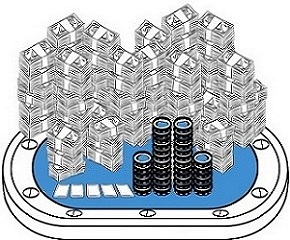
Another way to increase endurance is to make your mind more energy efficient. You can do this by mastering the corrections to your C-game. As a reminder, your C-game includes the biggest mistakes or weaknesses in your game. You know the corrections to them very well, but since you haven’t mastered them yet, they aren’t automatically applied.
For example, you waste mental energy thinking about folding instead of calling down too light. This is especially true when you are pushing to increase endurance. Your mind is tired and making a C-game mistake becomes more likely to happen. Be sure to use your Strategic Reminder in this poker strategy guide.
It will help you to focus on playing those spots correctly. Then after applying the correction more and more, your C-game automatically becomes less bad. You’ve mastered the corrections and that saves energy.
Jared Tendler, MS, LMHC is licensed therapist specializing in sport psychology and is the leading authority on the mental game in poker. Throughout his nearly 10 years coaching poker players he has worked with over 500 players hailing from over 45 countries, including many of the top players in the world. He is also the author of two best-selling books on the subject, The Mental Game of Poker 1 and Poker 2.



